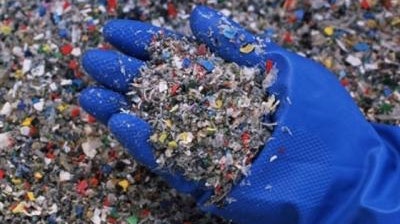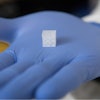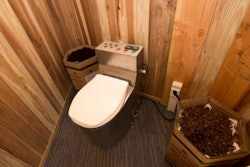
It's been a busy few days for Australian start-up Licella, whose innovative technology, developed in partnership with the University of Sydney, is the subject of new contracts with global investors that allow the re-imagining of the huge pulp and paper industry as biorefineries and the upgrading of end-of-life, difficult-to-recycle plastics - turning waste into renewable or recycled fuel blend-stocks.
This weekend, leading Canadian pulp and paper producer CanFor revealed it will invest funds sufficient for a full-scale commercial operation that will transform the resource-intensive pulp and paper industry by turning biomass waste into a petroleum substitute, biocrude.
Also known as bio-oil, it will be ready to go into existing petrochemical refinery streams to generate renewable fuels and/or chemicals.
The Canadian announcement came a day after Licella signed a $10m joint venture contract with UK company Renewable Chemical Technologies Limited - which is backed by the UK's leading renewable energy company Armstrong Energy - to build a world-first plant to convert end-of-life plastic destined for landfill.
More information about this innovative UK plastic recycling project is on the School of Chemistry website.
Licella, a science-based renewable energy start-up co-founded by Professor Thomas Maschmeyer, has developed a unique process in partnership with the University of Sydney - the Catalytic Hydrothermal Reactor (Cat-HTR™) technology - to convert low-cost, non-edible, waste biomass into a stable bio-crude oil.
Professor Maschmeyer, who is also the director of the new Australian Institute for Nanoscale Science and Technology (AINST), last month announced an $11m investment into another of his spin-offs, Gelion Technologies, to develop rechargeable battery technology based on nanostructured gels.
Professor Maschmeyer's latest joint venture, with leading Vancouver-based paper manufacturer Canfor Pulp Products Inc (CPPI) known as CanFor, will build commercial-scale biocrude plants that are integrated with the adjoining pulp and paper plants to greatly uplift the economics. Upon successful integration of the Cat-HTR™ technology, the Licella Pulp joint venture will investigate offering this solution to other third party pulp mills.
Licella CEO Dr Len Humphreys said: "Using the whole tree and not just a minor part will move the industry towards biorefining."
Professor Maschmeyer added: "In the pulp and paper industry worth billions of dollars, this shift will have global impact for good.".
The potential for other operations taking on economically viable conversion of sawdust and pulp & paper byproducts into bio-oil was significant because currently waste is burnt for low-quality process heat.
"Only 30% or so of a tree becomes paper, the rest is waste - we use this waste to make a new product - biocrude oil from renewable, already aggregated waste," Professor Maschmeyer said.
"After nine years of very hard work by an amazing team of individuals at Licella and the University, it is extremely pleasing to see this Australian green technology going global; it will make a substantial impact."
Vice-Chancellor Dr Michael Spence said: "The University is delighted to have played a part in supporting Licella to reach this milestone - a partnership that is flourishing and that shows Australian capabilities in the best possible light on the global stage."
CanFor President Brett Robinson said the Cat-HTR™ technology was a good fit for their pulp mill. "The opportunity to directly produce advanced biofuels from our existing streams could transition Canfor Pulp from being strictly a pulp and paper manufacturer to a bio-energy producer as well," he said.






















